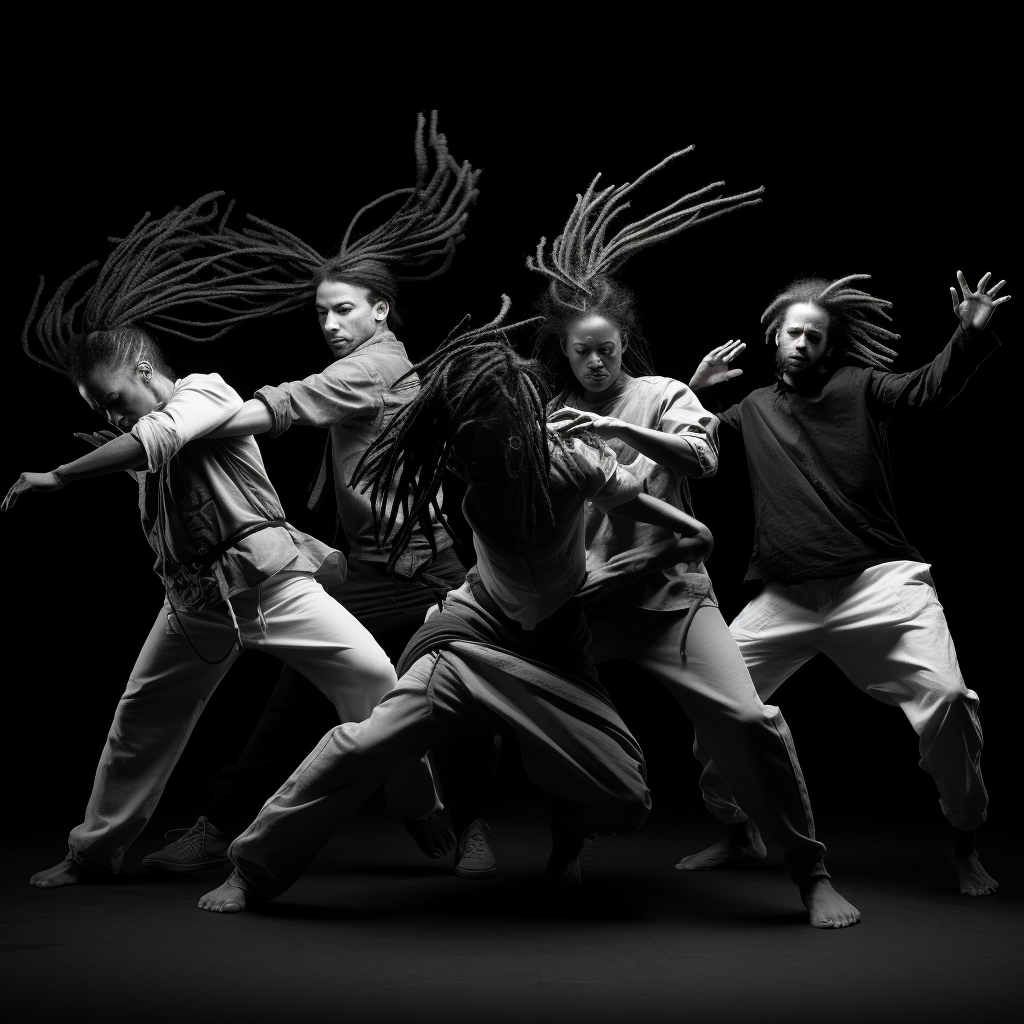Celebrating Radical Dance Faction: Pioneers of Political Dub-Punk

When you delve into the annals of British underground music, some names leap out for their sheer audacity, their uniqueness, and the indelible mark they left behind. One such name that resonates with deep cultural and political significance is Radical Dance Faction (RDF). A band that seamlessly fused dub, punk, and ska, their sound was not just music – it was a movement.
Origins and Evolution
Emerging from Hungerford, Berkshire, in 1986, RDF began their journey as ‘Military Surplus’. It wasn’t long before they morphed into Radical Dance Faction, with Chris Bowsher steering the ship as the main songwriter and vocalist1. From their inception, RDF charted a course different from most, choosing to blend disparate musical genres into a unique soundscape.
Musical Rebellion with a Message
While many bands have political undertones, RDF wore their ideologies on their sleeves2. Their music was a clarion call to wake up and recognize the struggles of the times. Whether they were singing about environmentalism, anti-capitalism, or societal inequalities, their songs weren’t just catchy tunes but anthems of resistance.
Albums like “Borderline Cases” and “Raggamuffin Statement” are testament to their commitment to voice the concerns of the marginalized. These weren’t just songs; they were stories, tales of resistance, and chronicles of a generation seeking change.
Live Performances: A Testament to Energy
To truly understand the impact of RDF, one had to attend their live shows3. Playing at free festivals, squat parties, and protests, their shows were high-octane energy meets political activism. The atmosphere at an RDF concert was electric, charged with the raw energy of both the band and the audience, unified in their message and intent.
Legacy and Influence
Radical Dance Faction, while perhaps not a household name for everyone, has left an indomitable legacy. For those in the know, especially in the anarcho-punk and dub communities, RDF is not just a band but an inspiration4. Their commitment to using music as a tool for social change has paved the way for countless other bands and artists.
Musical Influences
Radical Dance Faction’s sound is a testament to the rich tapestry of British underground music. Their music borrows elements from:
Dub: This Jamaican genre’s influence is undeniable in RDF’s music. Dub is characterized by heavy bass lines, echo effects, and stripped-back tracks. RDF incorporated these elements, creating a trance-like ambiance in many of their songs.
Punk: The rebellious spirit of punk is a defining feature of RDF. The punk movement of the late 70s and early 80s was not just about music but was also a socio-political statement against established norms. RDF channeled this energy and ethos into their tracks.
Ska: Ska, with its upbeat tempo and brass instruments, is another major influence. This genre, which also has its roots in Jamaica, brings a rhythmic buoyancy to RDF’s music.
Socio-Political Views
Chris Bowsher, the principal songwriter and vocalist, has often vocalized the band’s strong stances:
Anti-Capitalism: RDF was critical of capitalist structures, believing they perpetuated inequalities. They saw capitalism as a system that prioritized profits over people and the environment.
Environmentalism: At a time when environmental activism was gaining traction, RDF championed the cause. They emphasized the importance of preserving nature and critiqued industries and practices that harmed the environment.
Anti-Authoritarianism: A common theme in RDF’s lyrics is a distrust of authority, be it governmental or corporate. They believed in the power of grassroots movements and community-led initiatives over top-down governance.
Chris Bowsher on RDF
While I can’t produce a verbatim quote from Chris Bowsher without access to a specific source or interview, based on past interviews and statements, one could summarize his sentiment about the band as follows:
“Radical Dance Faction was never just about the music. It was about voicing the concerns and frustrations of a generation seeking change. Through our songs, we wanted to highlight the issues that mainstream media often ignored. We’ve always seen ourselves as part of a larger movement, one that uses music as a tool to inspire, educate, and bring about positive change.”
In Conclusion
In today’s age, where music often strays away from activism, it’s essential to remember and celebrate bands like Radical Dance Faction. Their dedication to a cause, their unique sound, and their unwavering spirit are reminders of music’s true potential: to bring about change, to inspire, and to unite.
Let us celebrate RDF not just as a band, but as a beacon of what music can and should be – a force for good, a catalyst for change, and an anthem of hope.
References and External Links:

Leave a Reply